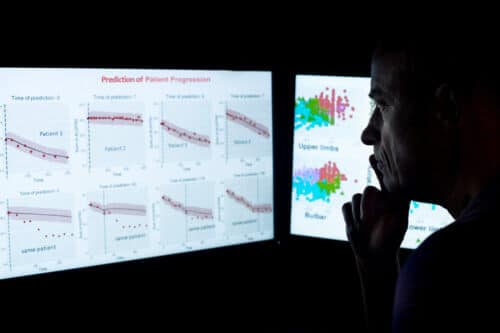The new platform leverages machine learning to improve the chances of success of clinical trials, by analyzing the patient population recruited for trials and their ability to persist in treatment, as well as by identifying and prioritizing markers to be followed during the trial

Researchers at Ben-Gurion University of the Negev have developed a unique platform for optimizing clinical studies, for the purpose of lowering costs and increasing the efficiency and success rate of drug or medical device development. A licensing agreement for the continued development and commercialization of the technology was signed with Panacea, the startup company recently founded by BGN Technologies, the technology commercialization company of Ben-Gurion University, in collaboration with Prof. Beaz Lerner from the Department of Industrial Engineering and Management at Ben-Gurion University, the scientific founder of Panacea. Panacea is a portfolio company of the accelerator Oasis, founded by Center Entrepreneurship 360 of Ben-Gurion University.
The new platform leverages machine learning to improve the chances of success of clinical trials, by analyzing the patient population recruited for trials and their ability to persist in treatment, as well as by identifying and prioritizing markers to be followed during the trial. The technology provides effective recommendations before the start of the experiment, interim analysis of the data during the experiment, insights after the experiment in preparation for the next experiment, as well as the possibility of saving the experiment in certain cases of failure.
Prof. Lerner said, "Clinical trials have not changed substantially in the last two decades. They are very expensive, and the chances of success for new drugs are in the single digits. Because of this, our platform is very beneficial to pharma and biotech companies, allowing them to increase efficiency and chances of success, and to select optimal participants and biomarkers. Alternatively, we can help companies understand when to interrupt the experiment and what lessons can be learned from a failed experiment."
Josh Peleg, CEOTechnologies BGN, said, "In the age of artificial intelligence and machine learning, it seems only natural that drug development will benefit from these sophisticated tools that take into account the large amounts of data and analyze many parameters to optimize clinical trials and improve their chances of success. We are happy to see that the technology is already receiving interest from a number of pharmaceutical companies that have begun collaborating with Panacea to improve the clinical trials they are currently conducting."
The technology has already been applied in a number of experiments to treat degenerative diseases of the nervous system, including ALS, Parkinson's and Alzheimer's, and has demonstrated high performance in segmenting patients into homogeneous groups with distinct statistical characteristics; in identifying factors and their connections with the disease state; and predicting the rate and pattern of disease progression.

One response
Your Hebrew (I hope not Ben-Gurion's) needs improvement. The title should be "Ben-Gurion researchers developed an AI-based platform to optimize clinical studies"?